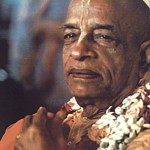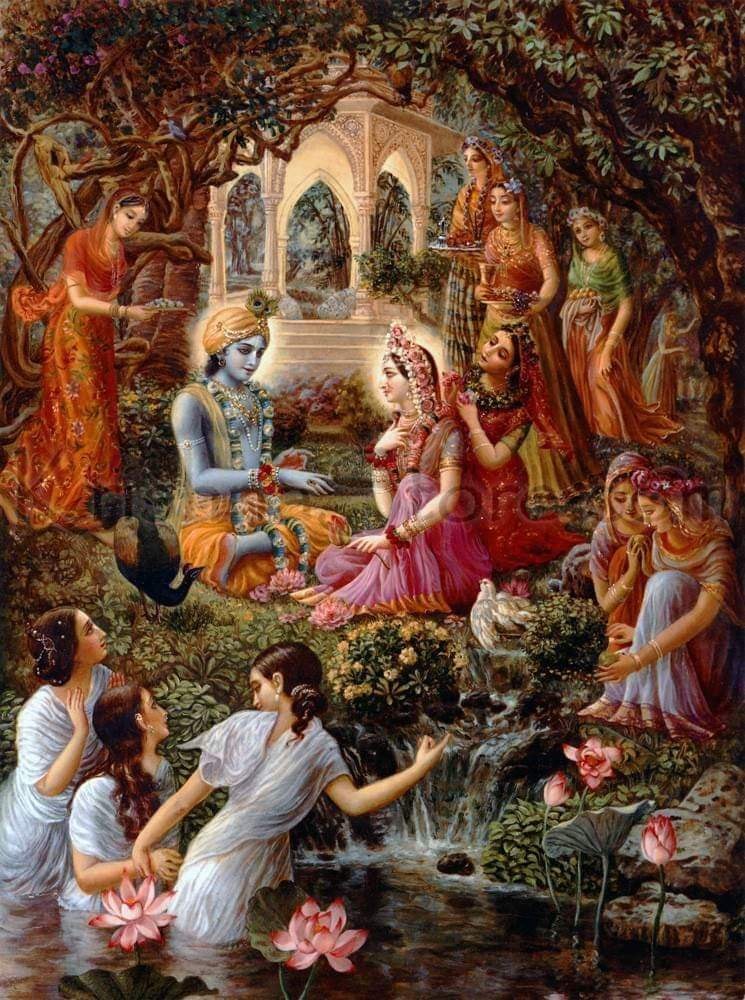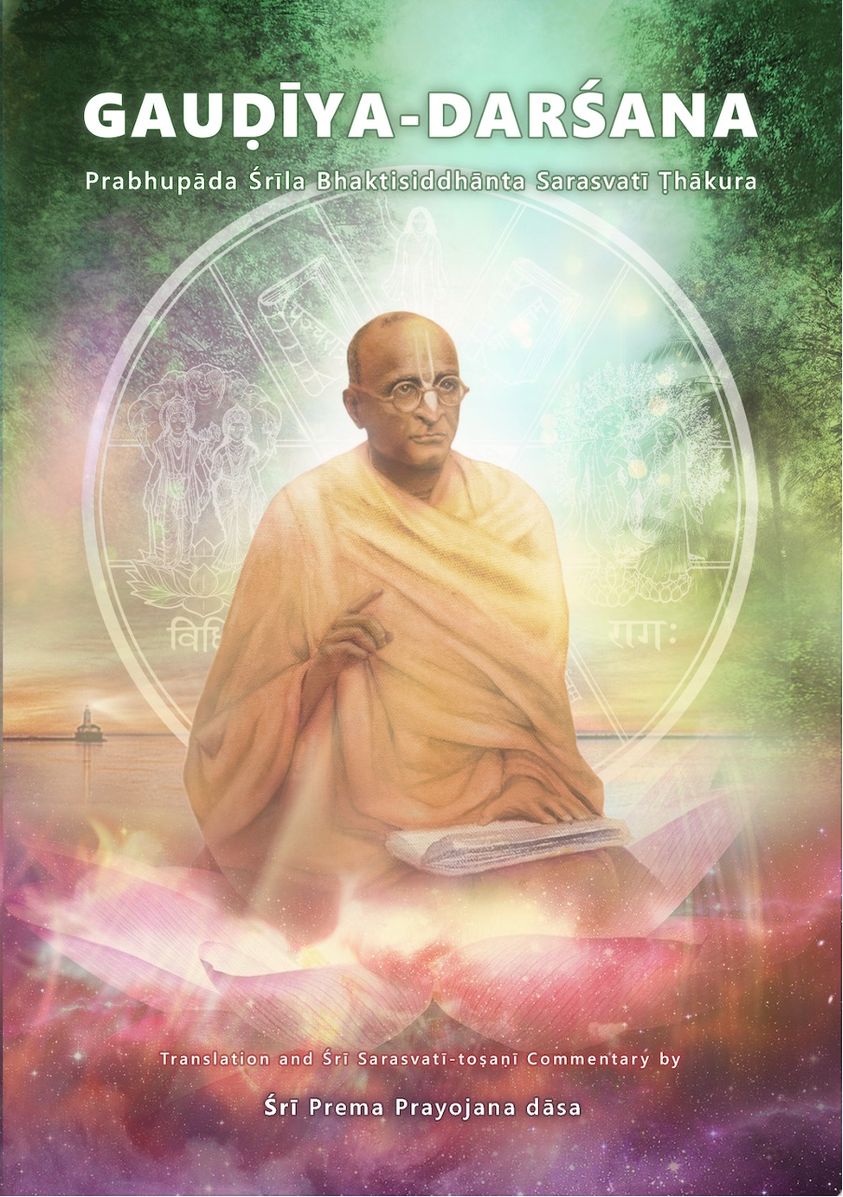Self Control
INSPIRATIONAL QUOTATIONS Saturday 12/06/2012
This illumination, comes from Srila Bhaktivedanta Swami Prabhupadas Bhagavad Gita As It Is Chapter 6 Texts 26-29

Srila Bhaktivedanta Swami Prabhupada
TEXT 26
TRANSLATION
From whatever and wherever the mind wanders due to its flickering and unsteady nature, one must certainly withdraw it and bring it back under the control of the Self.
PURPORT
The nature of the mind is flickering and unsteady. But a self-realized yogī has to control the mind; the mind should not control him. One who controls the mind (and therefore the senses as well) is called gosvāmī, or svāmī, and one who is controlled by the mind is called godāsa, or the servant of the senses. A gosvāmī knows the standard of sense happiness. In transcendental sense happiness, the senses are engaged in the service of Hṛṣīkeśa or the supreme owner of the senses-Kṛṣṇa. Serving Kṛṣṇa with purified senses is called Kṛṣṇa consciousness. That is the way of bringing the senses under full control. What is more, that is the highest perfection of yoga practice

Bhagavad Gita
TEXT 27
TRANSLATION
The yogī whose mind is fixed on Me verily attains the highest happiness. By virtue of his identity with Brahman, he is liberated; his mind is peaceful, his passions are quieted, and he is freed from sin. PURPORT Brahma-bhūta is the state of being free from material contamination and situated in the transcendental service of the Lord. Mad-bhaktim labhate parām (Bg. 18.54). One cannot remain in the quality of Brahman, the Absolute, until one's mind is fixed on the lotus feet of the Lord. Sa vai manaḥ kṛṣṇa-padāravindayoḥ. To be always engaged in the transcendental loving service of the Lord, or to remain in Kṛṣṇa consciousness, is to be factually liberated from the mode of passion and all material contamination

Text 28
TRANSLATION
Steady in the Self, being freed from all material contamination, the yogī achieves the highest perfectional stage of happiness in touch with the Supreme Consciousness. PURPORT Self-realization means knowing one's constitutional position in relationship to the Supreme. The individual soul is part and parcel of the Supreme, and his position is to render transcendental service to the Lord. This transcendental contact with the Supreme is called brahma-saṁsparśa. Bg 6.29

Lord Krishna
TEXT 29
TRANSLATION
A true yogī observes Me in all beings, and also sees every being in Me. Indeed, the self-realized man sees Me everywhere.
PURPORT
A Kṛṣṇa conscious yogī is the perfect seer because he sees Kṛṣṇa, the Supreme, situated in everyone's heart as Supersoul (Paramātmā). Īśvaraḥ sarva-bhūtānāṁ hṛd-deśe 'rjuna tiṣṭhati. The Lord in His Paramātmā feature is situated within both the heart of the dog and that of a brāhmaṇa. The perfect yogī knows that the Lord is eternally transcendental and is not materially affected by His presence in either a dog or a brāhmaṇa. That is the supreme neutrality of the Lord. The individual soul is also situated in the individual heart, but he is not present in all hearts. That is the distinction between the individual soul and the Supersoul.
![951241306_orig[1]](http://www.harekrishnasociety.com/wp-content/uploads/2012/05/951241306_orig1-150x150.png)
The Paramatma or Supersoul is present within our hearts
One who is not factually in the practice of yoga cannot see so clearly. A Kṛṣṇa conscious person can see Kṛṣṇa in the heart of both the believer and nonbeliever. In the smṛti this is confirmed as follows: ātatatvāc ca mātṛtvād ātmā hi paramo hariḥ. The Lord, being the source of all beings, is like the mother and the maintainer. As the mother is neutral to all different kinds of children, the Supreme Father (or Mother) is also. Consequently the Supersoul is always in every living being. Outwardly, also, every living being is situated in the energy of the Lord. As will be explained in the Seventh Chapter, the Lord has, primarily, two energies-the spiritual (or superior) and the material (or inferior). The living entity, although part of the superior energy, is conditioned by the inferior energy; the living entity is always in the Lord's energy. Every living entity is situated in Him in one way or another. The yogī sees equally because he sees that all living entities, although in different situations according to the results of fruitive work, in all circumstances remain the servants of God. While in the material energy, the living entity serves the material senses; and while in spiritual energy, he serves the Supreme Lord directly. In either case the living entity is the servant of God. This vision of equality is perfect in a person in Kṛṣṇa consciousness











